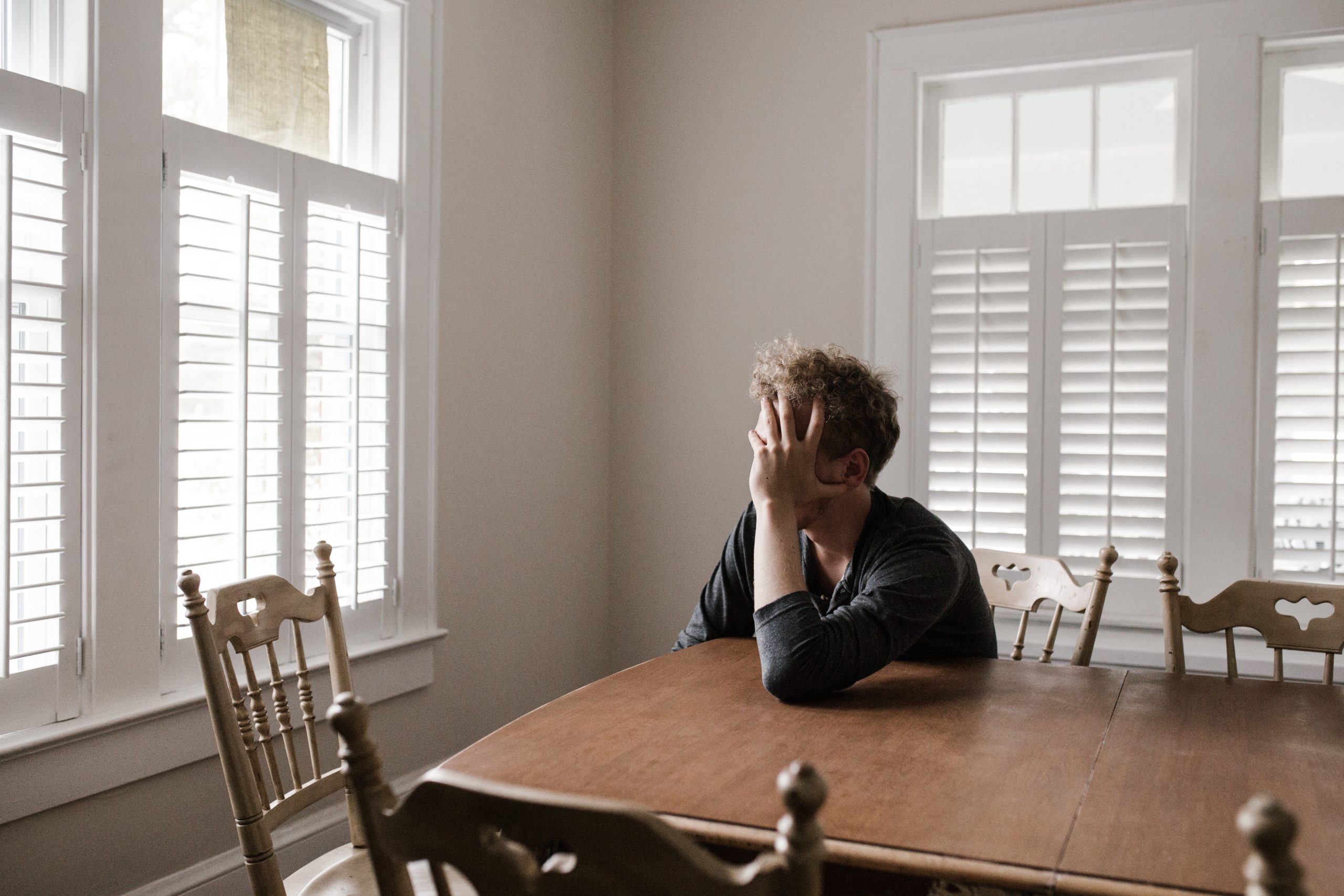What Is Social Anxiety?

It’s common to encounter situations in life that make us nervous, stressed, or uncomfortable. It’s also normal to feel a certain amount of anxiety when facing those situations. Sometimes, anxiety can even be helpful, like when we need to stay motivated to meet a deadline.
But some people have social anxiety that is so challenging and persistent that it interferes with everyday life. If your anxiety is so intense that it’s affecting your relationships or keeping you from trying new things, it can be helpful to get professional support to figure out what’s causing your anxiety and to learn successful coping strategies.
Signs of Social Anxiety Disorder
When you live with social anxiety disorder, or social phobia, you feel an overwhelming discomfort in social interactions or situations. You may fear being judged or rejected by others so much that you actively avoid interactions with others.
For example, let’s say you have a job interview. Feeling nervous before might motivate you to prepare for the interview. But getting so anxious that you can’t make it through the interview without extreme stress, or that you skip the interview altogether, is a sign that social anxiety is disrupting your life. That may be a sign of social anxiety disorder. Other signs of social anxiety disorder include:
Physical Signs During Social Interactions
- Blushing, sweating, or trembling
- Rapid heart rate
- Rigid body posture
- Speaking in a very quiet voice or making little eye contact
- Feeling nauseous or sick to your stomach
- Feeling like your mind has gone blank
Emotional Signs Before or During Social Interactions
- Fearing that someone will notice that you look anxious
- Finding it scary and difficult to be around other people, especially people you don’t already know
- Constantly feeling very self-conscious, embarrassed, or awkward in front of other people
- Constantly feeling afraid that other people will judge you, or worrying that you will embarrass or humiliate yourself in front of others
Behavioral Signs Before, During, or After Social Interactions
- Avoiding places where there are other people, or situations where you are the center of attention
- Avoiding doing things or speaking to people out of fear of embarrassment
- Feeling intense fear or anxiety during social situations
- Spending excessive time after a social situation analyzing or identifying what you feel you did wrong
- Regularly expecting the worst possible consequences from a negative experience or social interaction
Having social anxiety can feel very isolating. If you are struggling with social anxiety, you’re not alone: 15 million adults in the U.S. are affected by social anxiety disorder, and young adults experiencing major life transitions—like attending a new school or starting their first job—are particularly susceptible to feeling overwhelmed by social anxiety.
How to Manage Your Social Anxiety
Having social anxiety doesn’t have to keep you from making friends, trying new things, and reaching your full potential. You can develop new habits and coping skills to help you identify your feelings, find a more positive perspective, and overcome your social anxiety. Here are a number of techniques you can try to manage social anxiety:
Challenge Your Negative Thoughts
- How realistic is my fear?
- What is the worst thing that can happen if my fear turns out to be true? How bad is that, really? How likely is the worst outcome to actually happen?
- What would I tell a friend if I knew they were feeling the same fears I am feeling?
Keep Things in Perspective
- Remind yourself that people tend to pay a lot of attention to their own lives and far less than we think to other people’s lives. This means that people are very unlikely to be paying as much attention to the things you do or say as you think they are.
- Remember that people make mistakes all the time. Even if you make a mistake, you are not the first person to, and you won’t be the last.
- Remind yourself that even if you do make a mistake, most people will still be there for you.
- If your concern persists, check it out by sharing your worry with someone you trust and asking for feedback. Being direct like this can feel scary but truth is almost always kinder than your story.
Practice Mindfulness Techniques and Breathing Exercises
- When you feel signs of social anxiety, experience the negative emotions without judging them or acting on them.
- Stay in the present moment. Focusing on what’s happening in the present—in your body, in the space around you, in the larger natural environment—can really help bring your attention away from the worries you have projected onto the future or past. This simple shift, especially if practiced regularly, can make a very big difference in how you feel.
- Focus on your five senses. Bring your attention back to what your body is feeling, how your breathing feels, and what you are smelling, hearing, touching, and seeing (e.g. do you feel wind on your face? Is it warm or cold? What sounds do you hear? What are your eyes seeing etc.
- When you notice anxiety climbing, focus on taking slow, deep breaths. Quick and shallow breathing happens commonly when we feel anxious but often makes symptoms worse. Take a moment to connect with your breath and allow it to fill your belly and chest. Taking just a few deep breaths can make a big difference in how you feel.
Practice Participating in Social Situations
- Start with easier situations, like hanging out with a small group, and try different experiences as you get more comfortable.
- Choose situations where you feel supported and safe. For example, go out with a friend, or pick a spot where it’s easy to leave if you need to.
- You will feel less anxious if you are engaging with people who you feel connected to. Try connecting with the people in social situations instead of focusing on your own behavior.
- Understand that you may not succeed each time you try. Feeling a little challenged is one of the ways to broaden your comfort zone, but if a situation is too challenging, it’s okay to take a step back.
Learn more ways to manage anxiety
These are all techniques you can try on your own or with a friend. If you are struggling to manage your anxiety on your own, it’s time to ask for support from someone you trust or look for professional mental health care.
If you don’t know who to reach out to, text “HOME” to 741-741 for a free and confidential conversation with a trained counselor at any time.
How to Help a Friend with Social Anxiety
Sometimes people with social anxiety disorder avoid speaking in groups, meeting new people, or going to events even when they wish they could. If you notice that a friend is struggling in social situations, you can support them by suggesting that they try the tips above. You can also check in with them before, during, or after a stressful event.
- Before: “We have a big event coming up soon. I know I’m a bit nervous about it, so I just wanted to check in with you. Is there anything I can do to support you?”
- After: “That was a stressful situation. I noticed you were kind of nervous earlier. How do you feel now?”
- Before, During, and After: Give your friend words of affirmation and encouragement. People with social anxiety tend to be overly critical of themselves in social situations, so you can help counteract their inner critic by being friendly.
- Avoid: Language like “Just loosen up!” or “You’re being too quiet.” To a person with social anxiety, this can seem dismissive or critical.
Sometimes, a friend’s social anxiety can affect your relationship with them. It’s not always easy to know how to help. Check out our article about how to help a friend or loved one with anxiety for more ways to be a supportive friend to someone who is struggling.
Learn more about anxiety and how you can get help or help someone else
Can I Be Anxious Without Having an Anxiety Disorder?
How Do I Know If I Have an Anxiety Disorder?
How Can I Talk to Someone About My Anxiety?
How to Help a Friend or Loved One with Anxiety






